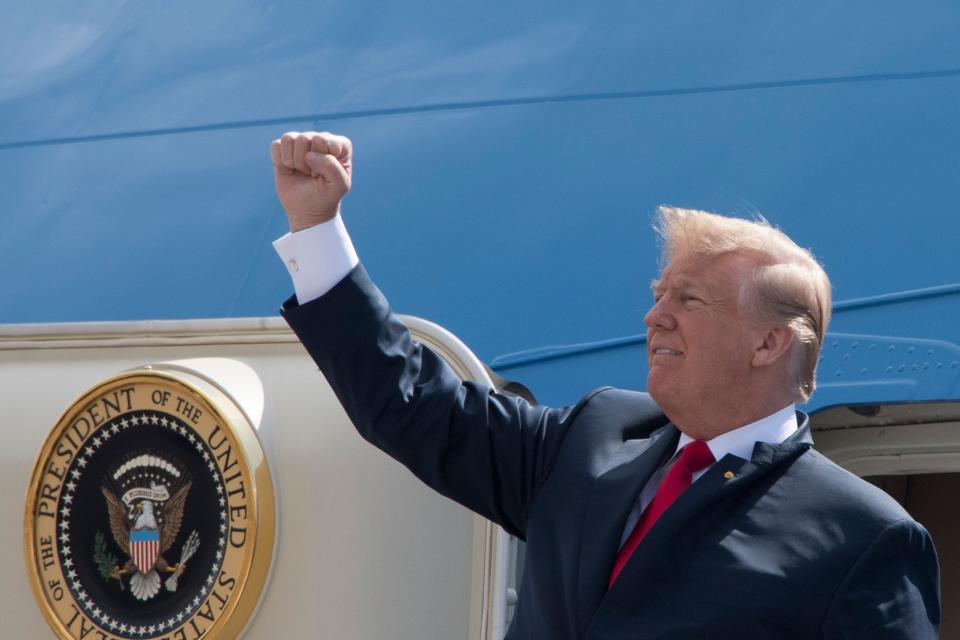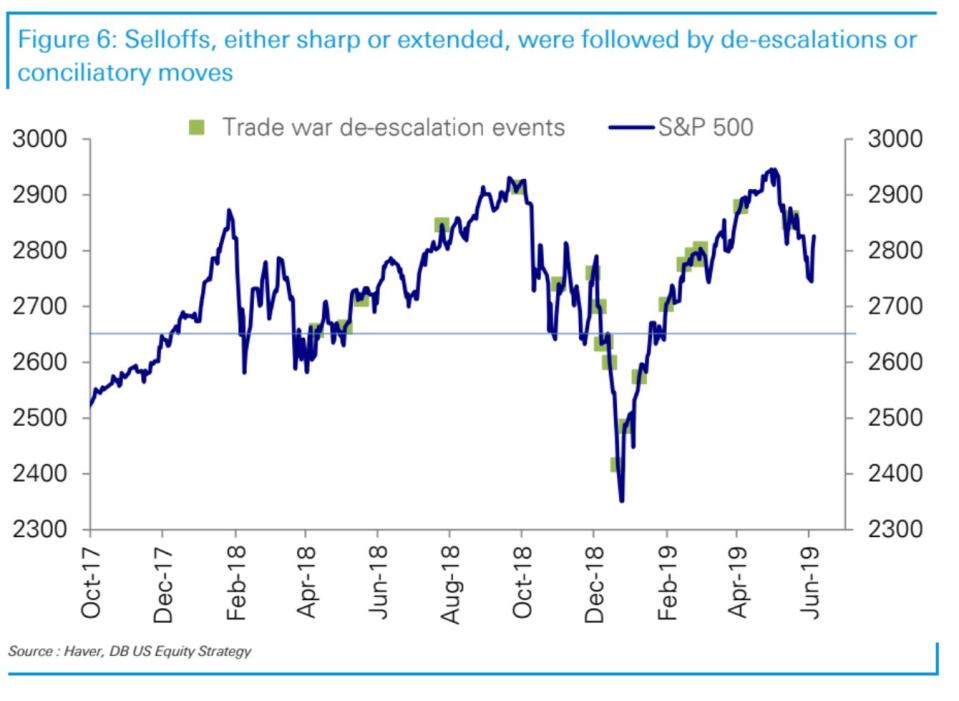Trump seems unwilling to let the stock market trade below this level
Forget the “Powell put.” There seems to be a “Trump put” that’s preventing the stock market from trading too low for too long.
Binky Chadha, Deutsche Bank’s chief equity strategist, looked back at the past 17 months of trading, starting with the initial tariff threat in January 2018, and found that trade tensions escalated typically when the S&P 500 (^GSPC) was above 2,650.
“Below S&P 500 2650, there were no escalations, only repeated de-escalations and this naturally looks to be the ‘Trump put’ level, if there is one,” Chadha wrote in a note to clients.

A put is an options strategy that can be used to limit an investor’s downside risk. A “Trump put” would be the level where the president may change his tone in a way so that stock won’t fall further. And so as long as the market is trading above that level, Trump and his administration will maintain an aggressive tone on trade.
Examples of deescalations over the past year include diplomatic tweets from President Trump or even a phone call between Trump and China’s President Xi Jinping.

Still, Deutsche Bank notes that some of the deescalation efforts towards the end of 2018 failed to keep the S&P 500 above 2,650. The index flirted with bear market territory on Dec. 24, closing at 2,351, a decline of 19.8% from its September 2018 peak or 11% lower than Deutsche’s Trump put at 2,650.
“Even if there is a put, it is not a very effective one,” Chadha wrote.
Worries about the Federal Reserve raising interest rates too quickly was another factor in the fourth quarter 2018 selloff, in addition to trade worries.
The Trump put theme even extended well into 2019. One of the biggest escalations of trade tensions between the U.S. and China this year came on May 5 when President Trump tweeted about raising existing tariffs against China.
“The surprise tweet re-escalating trade tensions and raising the tariff rate on $200 billion [of] Chinese goods from 10% to 25% occurred on the weekend right after the S&P 500 reached a new high,” he wrote.
On May 1, four days before President Trump’s tweet, the S&P 500 reached an all-time record intraday high of 2,954.
Scott Gamm is a reporter at Yahoo Finance. Follow him on Twitter @ScottGamm.
More from Scott:
What the plunging 10-year Treasury yield says about the economy and stock market
Why one top strategist is bullish on tech even with lingering trade worries
Follow Yahoo Finance on Twitter, Facebook, Instagram, Flipboard, LinkedIn, and reddit.
